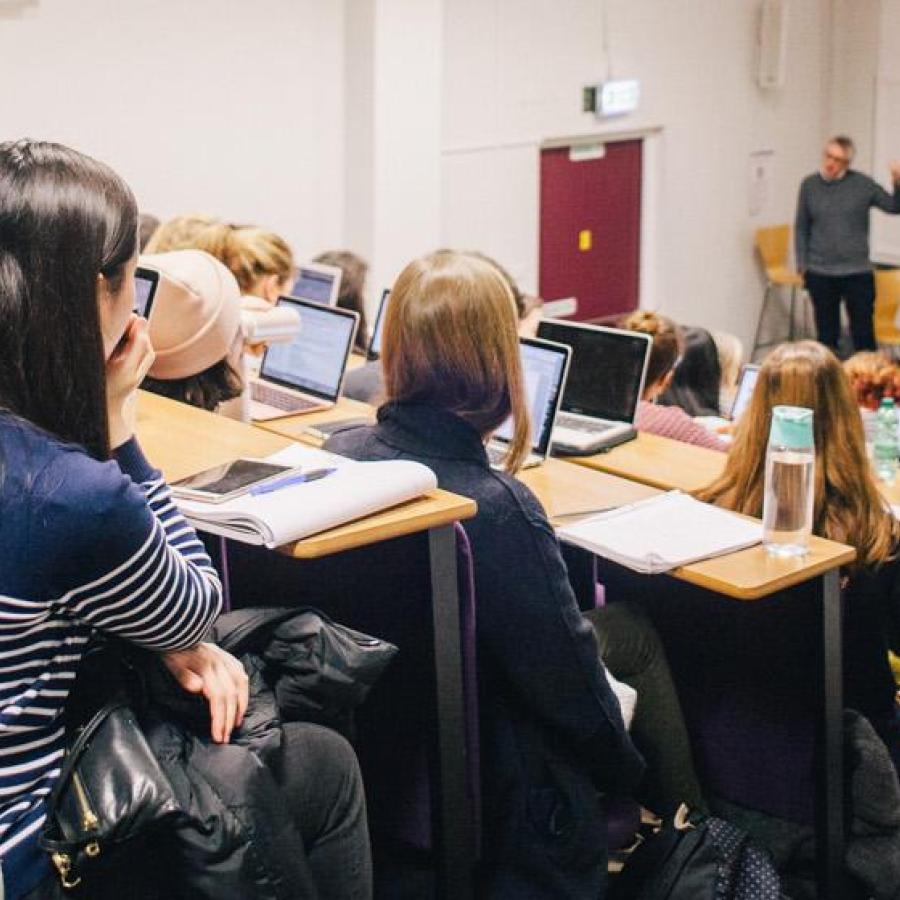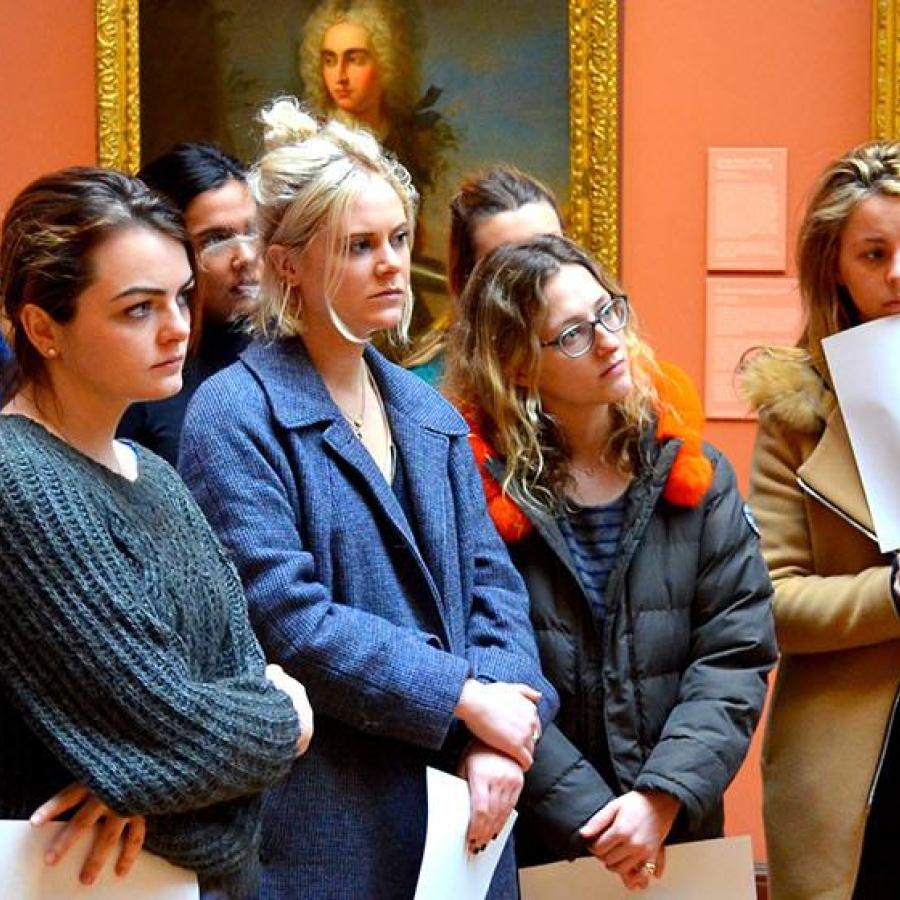Dr Megan C. McNamee

Job title:
Lecturer in Pre-Modern Art, 500–1500
Office:
O.51, Higgett Gallery, Hunter Building
Research Output:
Edinburgh Research Explorer linkBiography
Dr Megan C. McNamee is Lecturer in Pre-Modern Art, 500 to 1500, specialising in medieval Europe. Although McNamee’s interests range over the whole of the middle ages, they coalesce around questions of form, style, transmedial effects and the interplay of intellectual and material culture. She is guided by a curiosity about the ways that people—in the past and today—understand and articulate the physical world, and how, in turn, the world shapes human actions and ideas. Her research and teaching consider medieval numeracy, tablet weaving and late-medieval practices of folding.
McNamee’s work has been supported by The British Academy, The Leverhulme Trust, A. W. Mellon Foundation, American Philosophical Society and Kress Foundation. She has held long-term fellowships at the Warburg Institute, Center for Advanced Study in the Visual Arts (CASVA) and Max Planck Institute for the History of Science, and is a founding member of the Society of Fellows in Critical Bibliography.
McNamee obtained her BA from Wellesley College, MA from the Courtauld and PhD from the University of Michigan, Ann Arbor. Before pursuing a PhD, she worked as an artist’s assistant and spent summers excavating at Villa Magna, Lazio in Italy.
Dr McNamee’s teaching is tied to her research and draws on her expertise in the study of premodern books. Her approach to art history is informed by curatorial and archaeological experience, artistic practice and strong ties to the history of science. She incorporates local collections and includes opportunities for hands-on engagement with artefacts, materials and artisanal tools wherever possible. The emphasis is on primary sources.
McNamee currently offers two honours options: Picturing Science in Premodern Manuscripts and Printed Books (3rd year) and The Optics of Devotion: Sight, Light and Experiencing the Divine in Medieval Europe (4th year). She also contributes lectures on Ottonian/Year-1000 art, the Romanesque, abstraction, formalism and curating medieval objects to core courses.
Research
Research
Dr McNamee’s current research examines the extent to which a shared belief in number’s elemental status throughout the middle ages inflected how people perceived and interacted with the material world. She is completing a monograph that reconstructs numeric study in Europe around the year 1000, and traces the effects of widespread numeracy on representation, especially in religious contexts. A forthcoming essay analyses the mechanics and materiality of the number-filled grids of Boethius’s On Arithmetic, and an article in progress focuses on tablet weaving, a loomless technique that offers rare insight into the ways that women put quantitative concepts to work.
McNamee is leading a new collaborative project devoted to concertina-fold almanacs. United by their distinctive construction and almost entirely pictorial content, these manuscripts form a standalone group. The project, funded by The British Academy’s Neil Ker Memorial Fund, will catalogue and virtually visualise the twenty-one surviving examples. Investigators seek to understand how this unusual book type functioned and developed and, more broadly, what it tells us about time.
Select Publications
- ‘Grid Space in Boethius’s On Arithmetic’, in Jeffrey Hamburger, David Roxburgh and Linda Safran (eds.), Diagram Paradigm: Byzantium, the Islamic World, and the Latin West (Washington, DC: Dumbarton Oaks Publications, Spring 2022).
- ‘Romanesque Abstraction and the “Unconditionally Two-Dimensional Surface”’, in Elina Gertsman (ed.), Abstraction in Medieval Art: Beyond the Ornament (Amsterdam: Amsterdam University Press, 2021), 267–84.
- ‘Imaging and Imagining Solidity’, in Beatrice Kitzinger and Joshua O’Driscoll (eds.), After the Carolingians: Re-Defining Manuscript Illumination in the 10th and 11th Centuries (Boston: De Gruyter, 2019), 86–117.
- ‘Picturing as Practice: Placing a Square above a Square in the Central Middle Ages’, in Anthony Grafton and Glenn Most (eds.), Canonical Texts and Scholarly Practices: A Global Comparative Approach (Cambridge: Cambridge University Press, 2016), 200–23.
Current PhD students
Sight, Song and Sociability: Amateur Drawing and Domestic Music Production in the Sixteenth-Century Netherlands
PhD Supervision Topics
- Science and art
- Manuscript-based projects
- Artistic exchange
- Style
- Time and temporality
- Ottonian, Romanesque




